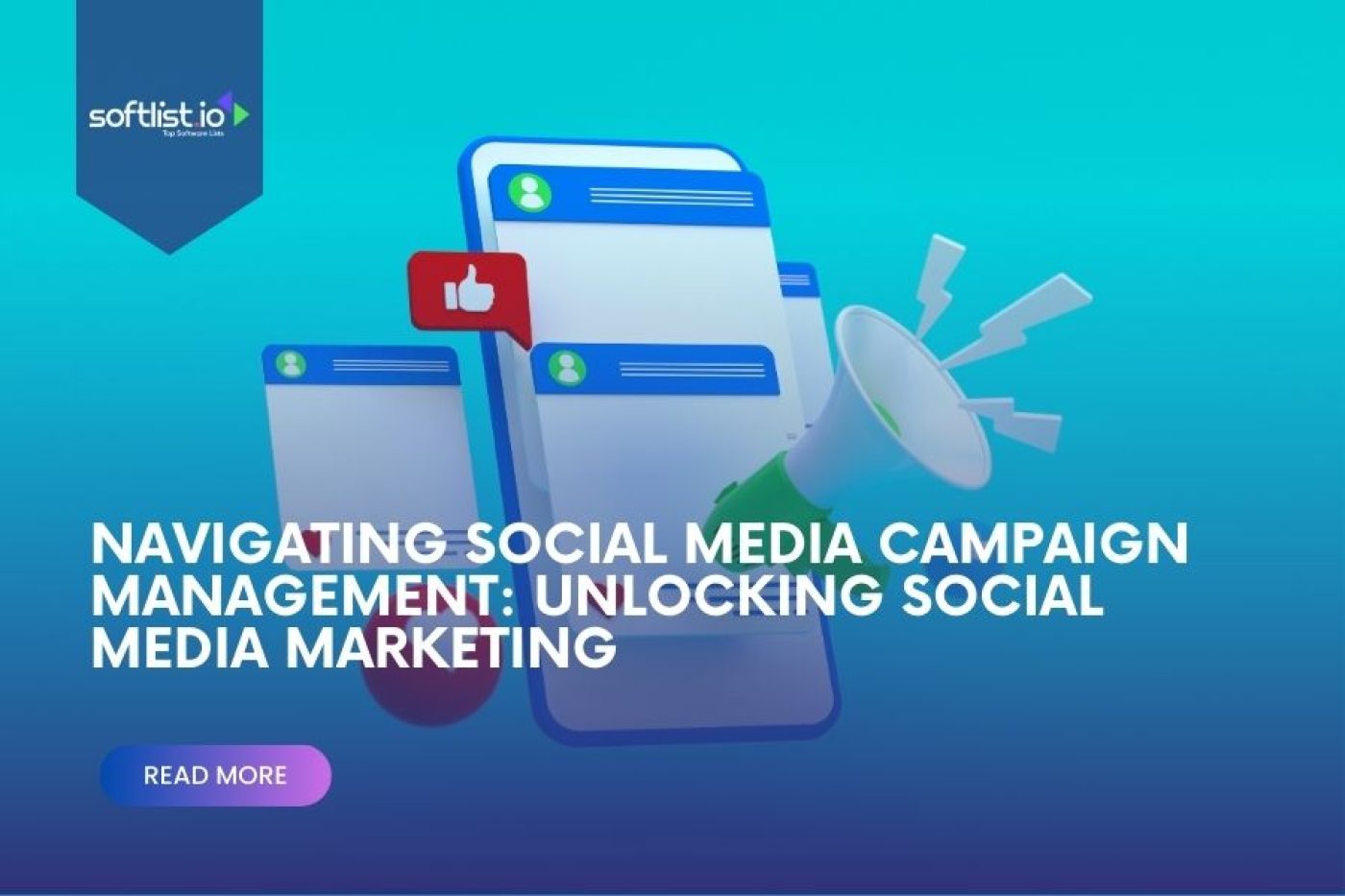Choosing the right campaign management tool is crucial for any business looking to grow and succeed in today’s digital landscape. With so many options available, deciding which platform best fits your needs can be overwhelming.
Two of the most popular choices, HubSpot and Salesforce, offer powerful features but cater to different requirements and challenges.
Businesses often struggle with software complexity, integration with existing sales and marketing tools, scalability, cost, and the learning curve of new platforms.
This article aims to simplify the decision-making process by comparing Salesforce vs HubSpot, helping you determine which campaign management tool is the ideal choice for driving your business growth.
Quick Overview of HubSpot vs Salesforce Differences
This table compares HubSpot and Salesforce across various critical features, highlighting their strengths and offerings to help businesses decide which platform suits their needs better.
| Features | Hubspot | Salesforce |
| User Interface and Ease of Use | Intuitive and user-friendly interface; easier onboarding process. | More complex UI; steeper learning curve but user-friendly with practice. |
| Marketing Automation | Automated workflows for email marketing, lead scoring; strong in inbound marketing | AI-powered automation for lead management; focused on B2B marketing. |
| Integrations with Other Tools | Extensive integration options with services like WordPress, Google Calendar; supports externally built integrations. | AppExchange offers various integrations, including MailChimp, LinkedIn Sales Solutions; powerful SaaS integrations. |
| Customer Support | Simplified onboarding with help desk tools; offers live chat and knowledge base. | Comprehensive support with shared workspaces for agents and incident management tools. |
| Cost | Sales Hub starts at $45/month; offers free versions of platforms. | Sales Cloud pricing from $25/user/month; no free versions of its platforms. |
| Sales Process Management | Features for email templates, call tracking, and sales automation. | Comprehensive contact management, lead management, and sales automation tools. |
| Market Share | Holds a 32% market share; more websites using its platform. | Slightly higher market share of 38%; focuses on larger customers. |
| CRM Features | User-friendly CRM with essential features for businesses of all sizes. | More robust and customizable CRM suitable for complex sales cycles. |
What is HubSpot CRM?
HubSpot CRM is a free customer relationship management software that offers businesses a centralized platform to organize, track, and nurture their leads and customers. It is designed to be user-friendly, making it accessible for businesses of all sizes.
HubSpot CRM integrates seamlessly with the broader HubSpot ecosystem, including marketing, sales, and service hubs, facilitating a cohesive approach to inbound marketing and sales strategies.

Source: Canva Pro
What is Salesforce CRM?
Salesforce CRM is a comprehensive customer relationship management solution that serves businesses across various industries and sizes. It is part of the Salesforce cloud ecosystem, offering extensive customization, integration, and scalability options.
Moreover, salesforce CRM provides tools for sales management, marketing automation, partner relationship management, and customer service, enabling businesses to efficiently manage customer interactions at every stage of the customer lifecycle.

Source: Canva Pro
HubSpot vs. Salesforce: User Interface and Ease of Use
User Interface (UI) and Ease of Use are critical aspects of software design that significantly impact the user experience. The User Interface refers to the design and layout of a software application, including how users interact with it through buttons, menus, and other elements.
A well-designed UI is intuitive and straightforward, allowing users to navigate and perform tasks without confusion. Ease of Use, on the other hand, measures how simple it is for users to achieve their goals using the software.
| Aspect | HubSpot | Salesforce |
| User Interface | Designed to be intuitive and user-friendly, making learning while using the platform feasible. It aims for a minimal and simple interface, with dashboards that effectively present important data. | It is more complex and requires more effort to learn, especially for CRM newcomers. However, it is still user-friendly with practice. |
| Ease of Use | Generally easier for users to manage the onboarding process and master new features, supported by classroom training and resources from HubSpot Academy. | It presents a steeper learning curve but offers comprehensive online training resources through Trailhead to help users become proficient. |
HubSpot vs. Salesforce: Marketing Automation
Marketing Automation refers to the technology and software platforms designed to effectively market on multiple channels online (such as email, social media, websites, etc.) and automate repetitive tasks.
It enables organizations to streamline, automate, and measure marketing tasks and workflows to increase operational efficiency and grow revenue faster. Marketing automation tools help businesses target customers with automated email, web, social, and text messages.
| Aspect | HubSpot | Salesforce |
| Automation Capabilities | Offers automated workflows for email marketing, lead scoring, and sending internal notifications. | AI-powered marketing automation for managing interactions with leads, lead qualification, and integrating leads into sales pipelines. |
| Marketing Focus | Strong emphasis on inbound marketing, excelling in content creation and drip email campaigns. | Focused on B2B marketing, excelling in preparing leads for sales engagement and ensuring high-quality prospect selection. |
| Marketing Channels | Broad coverage, including email marketing, social media, and content marketing. | A comprehensive approach, including social media ads, email marketing, and digital marketing, focusing on B2B strategies. |
| Key Strengths | Known for ease of use and effectiveness in inbound marketing strategies. | Renowned for its powerful automation tools, particularly for outbound marketing and B2B contexts. |
HubSpot vs Salesforce: Integrations with Other Tools
Integrations with other tools in a software platform refer to the ability of that software to connect and work seamlessly with external applications and services.
These integrations expand the functionality of the primary software, allowing users to enhance their workflows, automate processes, and streamline data exchange between different systems.
For businesses, leveraging a broader ecosystem of tools without leaving their primary platform, leading to increased efficiency and productivity.
| Aspect | HubSpot | Salesforce |
| Integration Marketplace | AppExchange offers various sponsored apps and integrations, including MailChimp and LinkedIn Sales Solutions. | Supports integrations with multiple services, including Salesforce, WordPress, and Google Calendar. Externally built integrations are also available. |
| SaaS Integrations | Integrates with many popular SaaS applications like Slack, Quickbooks, and Jira, providing a comprehensive ecosystem for users. | Offers a growing list of open APIs, allowing companies to develop custom integrations tailored to their specific needs. |
| Integration Options | Thousands of products and integrations provide various options to enhance CRM functionality. | In addition to standard integrations, it provides specialized services like website migration to HubSpot’s CMS with professional assistance. |
HubSpot vs. Salesforce: Customer Relationship Support
Customer support encompasses the range of services a company provides to assist its customers in making cost-effective and correct product use. It includes assistance in planning, installation, training, troubleshooting, maintenance, upgrading, and disposal of a product.
Practical customer support is crucial for maintaining customer satisfaction and loyalty, and it often involves various tools and channels to address customer needs promptly and efficiently.
| Feature | HubSpot | Salesforce |
| Onboarding & Help Desk Tools | Simplifies the onboarding process with flexible help desk tools like tracking ticketing and facilitating customer relationship building. | Provides agents with workspaces that can be shared, along with automated processes to speed up ticketing and support issue resolution. |
| Customer Interaction Tools | Offers a live chat feature and a knowledge base for customer service, supported by a shared inbox to manage communications efficiently. | Features Incident Management for handling major problems and automatically routes incoming communications to the most qualified sales agent from any channel. |
| Feedback and Analytics | Includes customer feedback surveys, conversation intelligence, and contact scoring, complemented by support reporting dashboards for insights. | Not applicable |
HubSpot vs. Salesforce: Pricing
Pricing in software services refers to the cost structure associated with using a software platform, which can include subscription fees, usage-based charges, and additional costs for premium features or support.
Effective pricing strategies are crucial for businesses as they directly impact the affordability and value proposition of the software.
Companies often offer various pricing tiers to cater to different sizes and types of businesses, ensuring customers can select a package that best fits their needs and budget.
| Aspect | Salesforce | HubSpot |
| Sales Cloud Pricing | Ranges from $25 to $300 per user per month, billed annually, catering to a wide range of business needs with different feature sets. | Sales Hub subscription starts at $45 per month, with tiers up to $450 and $1,200 monthly, offering scalable solutions for sales teams. |
| Marketing Cloud Pricing | Customer 360 Audiences packages range from $12,500 to $65,000 per organization per month, billed annually, for comprehensive marketing solutions. | Marketing Hub starts at $45 per month, with premium plans at $800 and $3,200 per month, designed for varying marketing demands. |
| Email, Mobile, and Web Marketing | Offers specialized packages starting at $400 and going up to $3,750 per year per organization for targeted marketing campaigns. | Not applicable |
| Free Offerings | Does not offer free versions of its platforms, focusing on paid subscriptions for access to its comprehensive suite of tools. | Provides free versions of its platforms with access to many features and tools, including unlimited users, highlighting its value proposition. |
HubSpot vs. Salesforce: Sales Process Management
Sales Process Management involves the strategic planning, implementation, tracking, and analysis of a company’s sales processes.
It aims to streamline and optimize each sales funnel stage, from lead generation to closing deals and post-sale support, ensuring efficiency and effectiveness in achieving sales objectives.
Sales process management tools provide sales teams with the necessary resources, data insights, and automation to enhance productivity, improve customer relationships, and drive sales growth.
| Feature | HubSpot | Salesforce |
| Outreach Tools | Offers email templates and call tracking for effective outreach. | Provides comprehensive contact and opportunity management to streamline prospects into deals. |
| Customer Profiles | Detailed customer profiles are accessible within Gmail or Outlook. | Advanced lead management for visibility into the sales pipeline and optimal lead routing. |
| Sales Automation | Integrates meeting scheduler and live chat options with sales automation for efficient communication. | Features automatic sales reports and customizable email alerts to keep the sales team informed. |
| Sales Management Playbooks | Includes scripts and positioning guides to assist sales reps in engaging with prospects. | Offers flexible revenue forecasting and the ability to adjust KPIs as needed. |
| Pipeline Management | Easy tracking of sales opportunities in the pipeline with sales pipeline management tools. | Great visibility into the sales pipeline, enhancing the ability to track and manage sales opportunities. |
| Analytics and Quoting Tools | Provides sales analytics tools and quoting functionalities for comprehensive sales insights. | Allows for easy customization of sales reports with drag-and-drop functionality, supporting data-driven decision-making. |
HubSpot vs. Salesforce: Marketing Share
Market share refers to the portion of an industry’s sales that a particular company controls over a specific period. It is a key indicator of a company’s competitiveness, popularity, and success within its market segment.
A higher market share often implies that a company is a leader in its industry, reflecting its ability to meet customer needs effectively compared to its competitors. Understanding market share helps assess the reach and impact of a company’s products or services.
| Aspect | HubSpot | Salesforce |
| Websites Using the Platform | Approximately 137,000 websites use the HubSpot CRM platform. | Approximately 100,000 websites use Salesforce. |
| Market Share Percentage | Holds a market share of 32%, indicating a strong presence in the marketing automation sector. | Holds a slightly higher market share of 38%, showcasing its leadership in the CRM industry. |
| Industry Recognition | Considered to be the best software for marketing automation, reflecting its effectiveness and popularity among users. | Regarded as the best customer relationship management system in the industry, highlighting its comprehensive features and reliability. |
| Comparative Insight | Despite having a lower market share percentage, HubSpot has more websites using its platform. | While Salesforce has a higher market share percentage, it supports fewer websites than HubSpot, indicating a focus on larger or enterprise-level customers. |
HubSpot vs. Salesforce: CRM Essential Features
| Features | HubSpot | Salesforce |
| Opportunity & Pipeline Management | / | / |
| Territory Management | X | / |
| Task Management | / | X |
| Desktop Integration | / | X |
| Reporting & Dashboards | / | / |
| Output Document Generation | / | X |
| Data Import & Export | / | / |
| Document & Content Management | / | X |
| Integration APIs | / | / |
So, Which CRM Software is Best for You?

Source: Canva Pro
The best CRM for your business depends on your needs, budget, and growth plans. HubSpot is an excellent choice for SMBs focusing on inbound marketing and looking for an all-in-one platform that’s easy to use and scales with their growth.
Salesforce is better suited for larger organizations or those with complex sales cycles, requiring a customizable solution with deep analytics and a wide array of integrations.
Assess your business objectives, technical capabilities, and growth aspirations to make an informed decision that will support your business growth effectively.
If you’re searching for customer relationship management software that aligns perfectly with your business needs, budget, and growth plans, consider exploring more about customer relationship management software on our website, Softlist.io.
Discover in-depth reviews, comparisons, and insights to help you decide which platform—HubSpot or Salesforce—will be your partner in achieving business excellence.
Frequently Asked Questions
What are the unique strengths of HubSpot and Salesforce, considering new features like sales forecasting and add-ons?
HubSpot’s unique strengths lie in its comprehensive inbound marketing tools, user-friendly interface, and educational resources, making it ideal for content management, SEO, and lead nurturing.
Salesforce, particularly with features like Salesforce Sales Cloud and advanced sales forecasting, remains the leading choice for businesses needing detailed analytics, reporting, and customization capabilities.
How does CRM functionality compare between Salesforce and HubSpot?
Salesforce’s CRM software remains more robust and customizable, suited for businesses with complex sales processes. HubSpot’s CRM, while simpler, is highly intuitive and sufficient for businesses requiring basic to moderate CRM functionalities.
Which platform is better for email marketing and automation?
HubSpot offers standout email marketing and automation tools as part of its inbound marketing suite, making it the preferred option for businesses focusing on these areas. Salesforce provides powerful automation capabilities through its Marketing Cloud, but HubSpot’s tools are more accessible and user-friendly for the average user.
What is the main difference between HubSpot and Salesforce for campaign management in 2024?
The primary difference between HubSpot and Salesforce in 2024 remains their target users and usability. HubSpot provides a user-friendly interface ideal for small to medium-sized businesses focusing on inbound marketing, while Salesforce provides a customizable experience with its Salesforce Sales Cloud, catering to larger businesses or those with more complex sales cycles.
Which tool is more user-friendly for small businesses or startups looking to use HubSpot or Salesforce in 2024?
For small businesses or startups in 2024, HubSpot also remains more user-friendly due to its intuitive design and educational resources that simplify the onboarding process. Businesses looking to use HubSpot can benefit from its straightforward setup and comprehensive support system.






